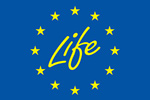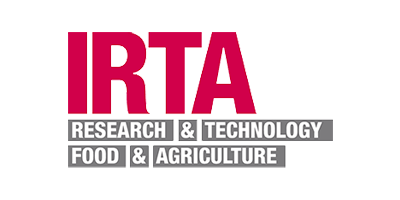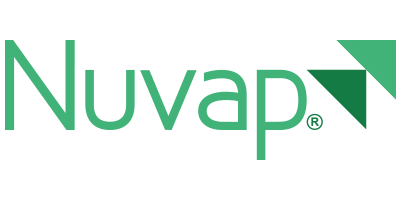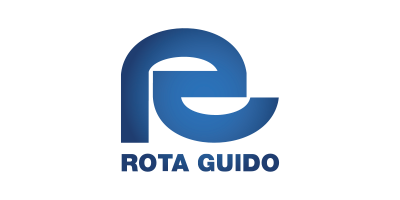The University of Milan (UMIL), established in 1923, is a public teaching and research-intensive university, the only Italian among the 21 prestigious members of LERU (League of European Research Universities), and an internationally high ranked university. With a teaching staff of about 2,200 tenured professors and with almost 64,000 students, the University of Milan is the largest university in Lombardy, one of the most dynamic and internationally oriented EU regions and leader in the Italian economy. The University of Milan’s Faculties offer a broad range of study programs that attract national and international students. UMIL participate with the Department of Environmental Science and Policy (ESP). The research group involved is active in the field of the environmental impact of agricultural and zootechnical activities, including water, air, and soil pollution. The group has a wide experience on NH3 and GHGs emissions assessment and mitigation strategies, energy production from renewable resources (anaerobic digestion), and in general the influence of the agri-food sector on the environment. The Department has successful research activities, both at the national and international level and it always welcomes enquiries from industry, from private and public research institutions.
- Administrative and technical project coordination
- Scientific and technical project supervision
- Monitoring and evaluation of the abatement efficiency of the evaluated abatement systems
- Validation of the NUVAP tool for microclimatic control
- Socio-economic and environmental impact assessment
- Contribution to technical reference documents and policy making
- Dissemination activities
- Networking activities
Marcella Guarino – Full Professor at the Department of Environmental Science and Policy (ESP)
She focused on the environmental impact of livestock structures. Furthermore, she investigated the potentialities of application of innovation technology in livestock farming (PLF) for the automatic monitoring of animal health and welfare, being a member of the European Committee for PLF from 2003. She has published more than 200 scientific and technical articles. She is co-inventor of 4 patents and co started two spinoff companies in PLF technology: Soundtalks NV and BloomVet.
Giorgio Provolo – Full Professor at the Department of Agricultural and Environmental Sciences – Production, Territory, Agroenergy (DiSAA)
He focused on some aspects of Agricultural Engineering related to housing facilities and the management of livestock effluents for the final purpose of a sustainable intensive livestock farming. In particular, it deals with the reduction of the environmental impact deriving from the management of the effluents produced in livestock farms and the influence of the housing structures on the welfare of dairy cows, with particular reference to the automated monitoring of animal behavior.
Jacopo Bacenetti – Researcher at the Department of Environmental Science and Policy (ESP)
He got his PhD (2009) in Technological Innovations for Agricultural, Food and Environmental Sciences at University of Milan (Italy). His focus was the evaluation of the economic, energetic and environmental performances of renewable energy production in agriculture. As Post-doctoral fellow, his focus moved to the application of Life Cycle Assessment (LCA) approach to agricultural processes, with various collaborations with academic and private partners at international level. He is author of over 60 scientific publications on international peer reviewed journals and books, plus over 30 publications in local journals and international conferences.
Federica Borgonovo – Technician at the Department of Environmental Science and Policy (ESP)
She focuses on laboratory activities to support research, in particular research projects in the environmental field. She is a responsible for monitoring odorous emissions for the determination of odor concentration in the environment through the use of olfactometric analysis (according to the European Standard EN 13725). Instead, for the recognition and classification of odors and for the evaluation of their olfactory impact she uses the Electronic Nose. Finally, she is responsible for the monitoring of gaseous emissions (NH3, N20, CH4 and CO2) coming from zootechnical shelters (such as sewage storage tanks) and in the management of the platform for the assessment of the waste methane potential and of biomass.
Cecilia Conti – PhD student in Environmental Sciences at the Department of Environmental Science and Policy (ESP)
She graduated in Animal Production Science and Technology at the Faculty of Veterinary Science of the University of Milan. During the fellowship, her focus was the evaluation of alternative proteins (in particular, earthworms) proposed as food sources, taking in consideration social, nutritional, safety and environmental aspects. Now, she is getting her PhD in Environmental Sciences with focus on the evaluation of different abatement systems for emissions of ammonia, particulate matter and odor in intensive livestock farming.)
Luigi Orsi – Assistant professor at the Department of Environmental Science and Policy (ESP)
He received his PhD in Corporate Finance and Management from the Department of Economics, Management and Quantitative Methods, University of Milan, Italy. His scientific interests are in the fields of innovation and environment-related technology management, with primary focus on the themes of patent intelligence, strategic alliances, agro-food supply chain management and sustainable development. He is author of several publications in international journals such as: Research Policy, Supply Chain Management: An International Journal, Technovation, Technology Forecasting and Social Change, Land Use Policy, Journal of Rural Studies, Technology Analysis and Strategic Management.
Andrea Ganzaroli – Associate Professor at the Department of Environmental Science and Policy (ESP)
He teaches social media and digital marketing at the MSc Degree in Management of Innovation and Entrepreneurship, Environmental Management at the MSc Degree in Environmental and Food Economics and Strategic Management at MSc degree in Industrial Chemistry. His main research interests are still in the area of Innovation and regional innovation interests. However, he started to focus on SMART and Sustainable Tourism and, more recently, on the circular economy and circular supply chains.
Cosimo Tansini – Administrative and financial support officer on research and innovation projects at the Department of Environmental Science and Policy (ESP)
He holds a master’s degree in European Administration Sciences from the University of Pavia. Previously he worked at the DG Environment and Climate of Lombardy Region and at the Secretariat of the Transport Committee of the European Parliament.
Michele Costantini – Research fellow at the Department of Environmental Science and Policy (ESP)
His main activity is the environmental, economic and social impact assessment of technologies applied to agri-food supply chains.
IRTA is a research institute owned by the Government of Catalonia (Spain) ascribed to the Department of Agriculture, Livestock, Fisheries and Food. It is regulated by Law 04/2009, approved by the Catalan Parliament on 15th April 2009, and it is ruled by private regulations. It is composed of a network of 10 research centers and experimental stations and 3 associated centers all over Catalonia. Its mission is to contribute to modernizing, improving, boosting competitiveness and fostering sustainable development in the sectors of agriculture, food, agro-forestry, aquaculture and fishing, as well as in areas related to the supply of healthy, high quality foodstuffs to consumers. IRTA gives technical assistance and specialized advice to groups, companies and representatives from the sectors in which it carries out its activity.
IRTA has a vast experience in research projects, being involved in 2.300 R&D activities in the last 6 years, including both public funded project and private contracts. IRTA has coordinated 35 projects. Out of them, 13 are international projects (LIFE, H2020, FP7, and EFSA Procurements) and the remaining 22 are national and regional projects. This experience guarantees a smooth coordination between Consortium and the EU, and among partners as well.
IRTA is organized in four (4) Areas (Animal Production, Plant Production, Food Production and Sustainability in Agrosystems), and in 18 Programs. GIRO and Animal Welfare are the two Programs involved in the present project:
- Animal performance and welfare monitoring and measurements
- Environmental impact assessment in Spanish farms
- Contribution to technical reference documents and policy making
- Dissemination
- Network activities
August Bonmati – PhD
Is an agronomist engineer with a long and consolidated experience in organic waste management, characterization and processing. He has been working as researcher in the academia and research institutions. He started his career at the University of Lleida (Spain) where he obtained his PhD. He continued his career at the University of Girona as a lecturer in Environmental Science department and conducting research on wastewater treatment. He then moved to the Waste Agency of Catalonia where he continued his work in the management, treatment, control and processing of environmental licenses for organic waste management and treatment facilities, as well as prospecting new organic waste treatment technologies. In 2008 he started a new job as a researcher at the Technological Centre of Organic Waste (GIRO) Management that was afterwards taken over by the Institute of Agrofood and Technology Research (IRTA). During these years, he has been responsible of the coordination of public and private research projects with industry and government departments. The projects are related with the organic waste characterization and management, anaerobic digestion of complex wastes, effluent post-treatment (struvite, stripping, etc.), microbial characterization (molecular biology techniques), GHG emission sampling protocols and bioelectrochemical systems.
Emma Fàbrega – PhD
Holds a Veterinarian Sciences degree (1995), Master (2000) and PhD (2002) in Animal Production and a Msc degree in Applied Animal Behaviour and Animal Welfare (Welfare 1997-1998). From 2011 she is Diplomate of the European College of Animal Welfare and Behaviour Medicine. She has worked with the Animal Welfare group since 2003 and has been involved in EU projects (Welfare Quality®, Q-PorkChains, SABRE, Alcasde, IMPRO, ALL-SMART-PIGS, ECO-FCE, FEED-a-GENE, EU PIG) and EFSA’s “Development of Animal Welfare Risk Assessment Guidelines on Transport and on housing”. She has coordinated four national funded projects on animal welfare, one on alternatives to piglet castration, two on welfare implications of livestock precision farming and one on new strategies to improve welfare (free farrowing and environmental enrichment for pigs). She has gained experience in project coordination from this participation in national and international projects. Research topics include assessment of animal welfare on farm, use of precision farming to improve animal welfare, animal welfare in sustainable production systems and alternatives to painful procedures. She is member of IRTA’s Ethical Committee and is the Mediterranean Secretary of the International Society of Applied Ethology (ISAE). She has published more than 45 peer-reviewed papers in the field of farm animal welfare and presented more than 55 communications in national and international conferences.
Assumpció Antón – PhD
In 1982, Dr Antón became technician of the Agricultural Department of Generalitat of Catalunya. Researcher of IRTA since 1985. From 2008 to 2016 she worked as an associate professor in the Chemical Engineering Department at University Rovira Virgili (Spain). Her area of expertise is the development and application of Life Cycle Assessment methodology in agriculture. Final goal of her work is the improvement of agricultural systems from an environmental point of view. To reach this goal Dr Antón focus her research on the improvement of inventory collection (i.e. emissions modelling and databases) and in the development of Life Cycle Impact Assessment methods mainly related to agricultural processes, i.e. land use, soil quality, water consumption, eutrophication and toxicity due to pesticide application.
Victor Riau – PhD
Is a Bachelor of Marine Science and Doctor of Environmental Technology and Water Management from the University of Cadiz. He conducted his doctoral thesis on the field of the anaerobic digestion of sewage sludge with the dissertation entitled “Optimizing the temperature-phased anaerobic digestion of sewage sludge”. He has more than 10 years of research experience: University of Cadiz (2007-2012), Spanish National Research Council (CSIC) (2012-2013) and IRTA (2014-Present). He has published 10 international peer-reviewed articles, 3 articles in national dissemination journals and 5 book chapters. He has participated in more than 12 competitive national and international projects and in more than 10 projects with companies. He is currently the coordinator and principal researcher of the H2020 project “Circular Agronomics” (2018-2022). He has 2 patents and has presented more than 30 contributions in scientific congresses and conferences. His main current research lines are the anaerobic treatment of organic waste, the nutrient recovery from waste streams and the emission monitoring from the agricultural and livestock sector.
Antonio Velarde – PhD
Is head of the Animal Welfare Unit of IRTA since 2009, and has 15 year research experience in the animal welfare on farm, during transport and at slaughter. He studied at the Autonomous University of Barcelona and has a PhD in Animal Welfare and Meat Science (2000). Main research projects and interests include the European projects “Integration of animal welfare in the food quality chain: from public concern to improved welfare and transparent quality (Welfare QualityR – Food-CT-2004-506508. 2004-2009), coordinating the development of the protocol to assess pig welfare on farm and at slaughter, and “Religious slaughter: improving knowledge and expertise through dialogue and debate on issues of welfare, legislation and socioeconomic aspects” (DIALREL- 043075. 2006-2009), as member of the management team, and leading a subproject. He has participated in the EFSA project “Development of Animal Welfare Risk Assessment Guidelines on Transport”, and currently he is member of the EFSA working group on transport. He has published intensively in the field of farm animal welfare and is co-editor of the book “On farm monitoring of pig welfare”.
Antoni Dalmau – PhD
Studied Veterinary Medicine at the Autonomous University of Barcelona and received his BVSc degree in 2000. From the same University he received in 2003 a Master’s degree in Animal Production and in 2005 the PhD degree Veterinary Sciences. Since 2005, he is researcher on Animal Welfare in IRTA (Institute for Food and Agricultural Research and Technology-Spain). His fields of expertise are: 1.Study of stress response, social and feeding behaviour and environmental adaptation in ungulates; 2.Study of animal welfare indicators in pigs and cattle at farm and at the slaughterhouse; 3.Aversion test, fear, pain and abnormal behaviour in pigs; 4.Use of gas mixtures as alternative to the CO2 for stunning pigs and 5.Ritual slaughter of cattle, sheep, goat and poultry at the slaughterhouse. Since 2005 He has been involved in 25 national and European projects. He has published a total of 50 articles in scientific peer-reviewed journals, 12 chapters in books, two books, and 63 communications in national and international conferences.
Nuvap Srl was established in 2014 with the aim is to redefine the standards of quality of life and safety for all its customers, through an innovative platform for monitoring indoor pollutants.
Thanks to Nuvap’s solutions, it is possible to detect and monitor, in a simple and comprehensive manner, the presence of both chemical and physical pollutants in workplaces, schools, health care facilities or other private and public buildings where people sped regularly several hours per day. The Nuvap ProSystem solution consists of the My.Nuvap multi-tenant platform and a range of extremely compact, multi-sensor devices with a simple design and uncomplicated activation and management. The devices are connected to the company Wi-Fi and require a simple discovery and registration procedure on My.Nuvap cloud platform. Once the connection is made, no further configuration is required.
All the environmental parameters are accessible in real time, via web and app. Application programming interfaces are available to integrate Nuvap’s data into third party platforms. Nuvap’s technology is protected by international patents, relating to the exclusive combined and constant monitoring system for polluting agents, which may be present in the environments in which we live. Nuvap Engineering Labs are in Pisa and the sales offices are in Milan.
Nuvap won Pulse 2017 Award, as Best Smart Home Technology. Moreover, the company won 2 open innovation projects with Generali Insurance and the International Oil company ENI. In the biennium 2018-2019, Nuvap is partner of the European Campaign Healthy Workplaces – Manage Dangerous Substances by EU-OSHA.
- Design, supply and installation of the microclimatic tools
- Provision of an accessible and reliable cloud platform for indoor pollutant monitoring
- Development of an artificial intelligence to be integrated with the microclimatic control unit for the automatic activation of the emissions abatement systems
- Technical support
Marco Villa – Nuvap Pre-Sales Technical Engineer
He has fifteen years of consolidated experience in the supply, integration and support of services in the telecommunications and ICT sector inside and outside Europe
The company ROTA GUIDO, founded in 1964, thanks to its history and the competence and professionalism of its technicians, is today recognized as the undisputed leader on the Italian scene and as a company with high reliability at international level for the design and construction of zootechnical centers complete.
Aware that the change in the world cannot be stopped, but only caught and transformed into opportunities, the company, over the years, has extended its passion and dedication to the new frontier of renewable energy, investing resources and great energy in the field of biogas and biomethane plants.
To date, the company has designed and built more than 300 plants that are still functioning and highly performing.
The driving force of ROTA GUIDO is the awareness of being able to offer its customers a solid and reliable contribution to the best practices in the field of animal welfare and the enhancement of sewage treatment and digestate, which represent the foundations for the productivity and profitability of a company with a view to sustainable development, to safeguard the territory and future generations, as well as a tool for promoting the circular economy.
ROTA GUIDO operates in all its areas according to safety standards pursuant to Legislative Decree 81/08 and is also certified ISO 9001/2018 and Bentley SOA, Presidential Decree 207/2010.
- Design, supply and installation of the scrubbers
- Development of the market, replicability and transferability plan of the tested technical solutions
- Technical support










